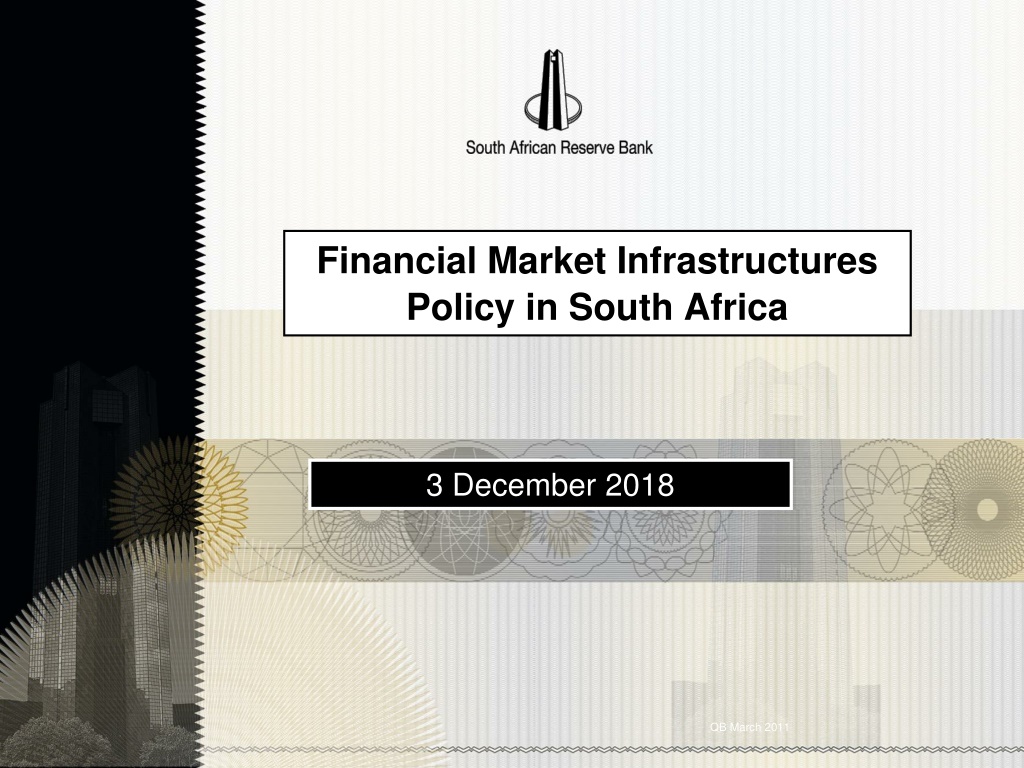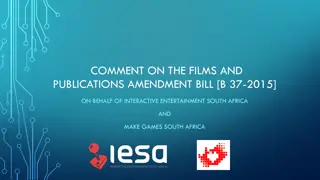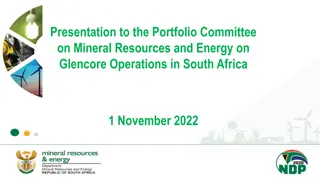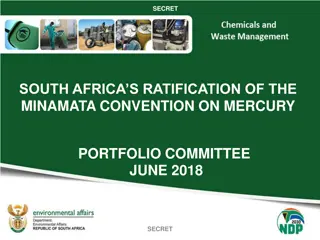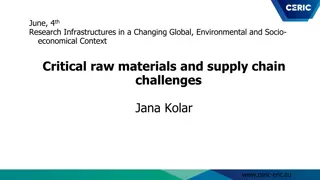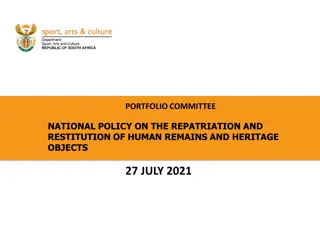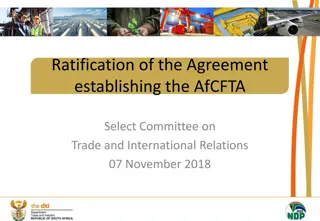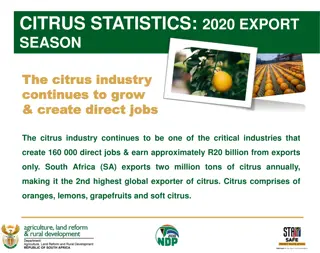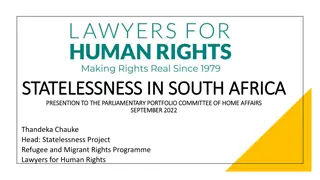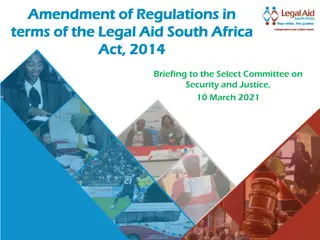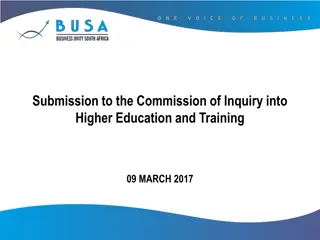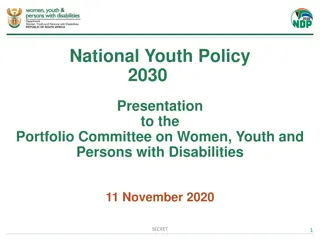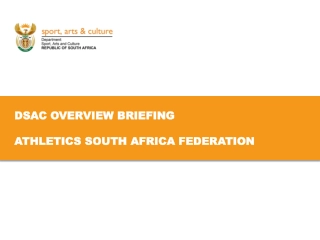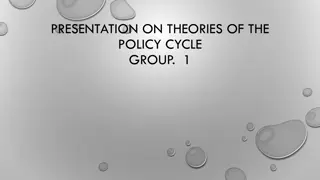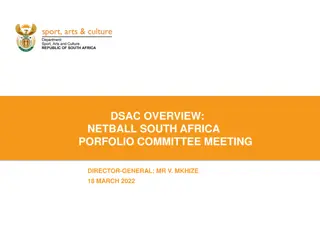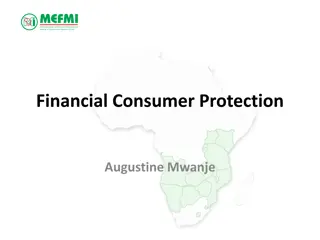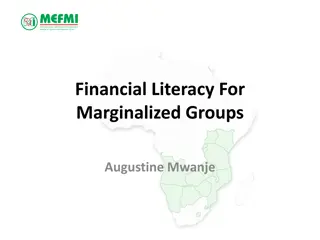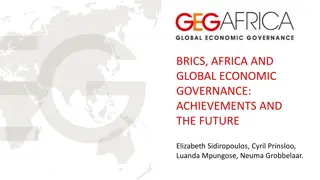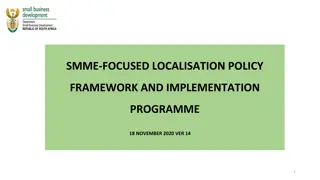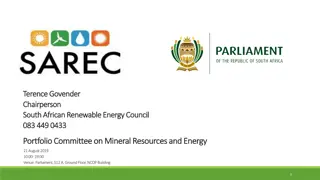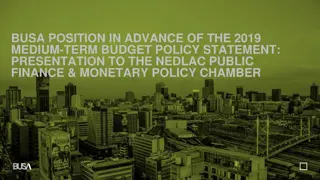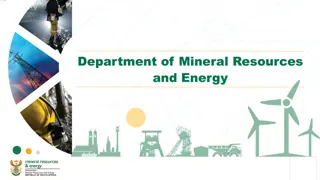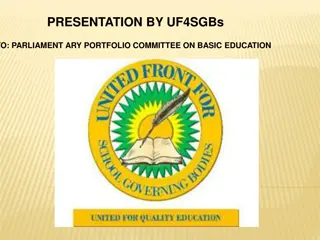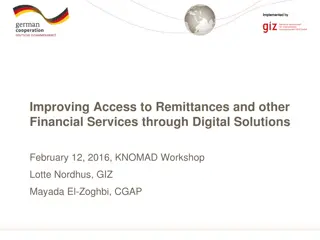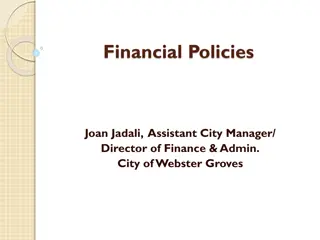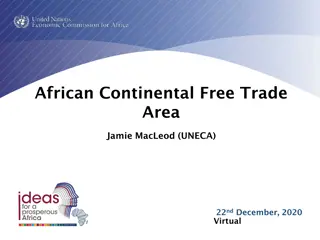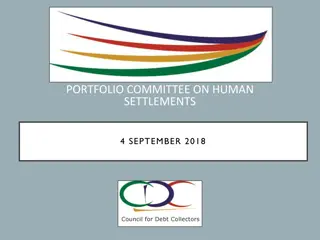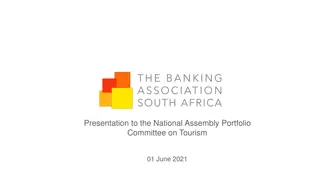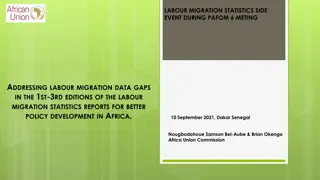Financial Market Infrastructures Policy in South Africa
Financial Market Infrastructures Policy in South Africa as of December 2018 outlines the definition of FMIs, policy objectives, criteria for designation of FMIs, types of FMIs such as payment systems, and proposals related to centralization. The policy emphasizes safety, efficiency, transparency, access, risk reduction, and financial stability.
Download Presentation

Please find below an Image/Link to download the presentation.
The content on the website is provided AS IS for your information and personal use only. It may not be sold, licensed, or shared on other websites without obtaining consent from the author. Download presentation by click this link. If you encounter any issues during the download, it is possible that the publisher has removed the file from their server.
E N D
Presentation Transcript
Financial Market Infrastructures Policy in South Africa 3 December 2018 QB March 2011
Contents 1. FMI definition 2. Policy and regulatory objectives 3. Criteria for designation of FMIs 4. FMI types 5. FMI policy 6. Proposals for FMI policy relating to centralisation QB March 2011
1. Financial Market Infrastructures (definition) Definition of FMI CPMI-IOSCO a multilateral system among participating institutions, including the operator of the system that is used for the purposes of clearing, settling or recording payments, securities, derivatives or other financial transactions . FMIs systemically important FMIs and/or non-systemically important? FMIs operate a technical infrastructure or not? QB March 2011
2. Policy and regulatory objectives enhancing safety and efficiency; fostering transparency; promoting access; reducing systemic risk; and maintaining financial stability. QB March 2011
3. Criteria for designation of systemically important FMIs (a) The size of the FMI; (b) the complexity of the FMI and its business affairs; (c) the interconnectedness of the FMI with other infrastructures within or outside the Republic; (d) whether there are readily available substitutes for the financial products and financial services that the market infrastructure provides; (e) recommendations of the Financial Stability Oversight Committee; (f) submissions made by or for the FMI; and (g) any other matters that may be prescribed by Regulation. QB March 2011
3. Financial Market Infrastructures (types) 3.1 Payment FMIs Recognised ito the PFMI position paper Large value domestic payment system (settlement) SAMOS (SARB) Large value regional payment system (settlement) SIRESS (SARB) Continuous Linked Settlement System (settlement) CLS (CLS Bank) Retail payment system (clearing) Bankserv Securities settlement system (clearing) Strate Retail payment system (clearing) Mastercard Retail payment system (clearing) VISA QB March 2011
4. Financial Market Infrastructures (types) Designated payment systems (FMIs) Large value domestic payment system (settlement) SAMOS (SARB) Large value regional payment system (settlement) SIRESS (SARB) Continuous Linked Settlement System (settlement) CLS (CLS Bank) Retail payment system (clearing) Bankserv Securities settlement system (clearing) Strate QB March 2011
4. Financial Market Infrastructures (types) Securities and derivatives market infrastructures Exchanges JSE Limited, ZAR X, 4 Africa Exchange, A2X Clearing House (CCP) JSE Clear, Strate Limited Central securities depository Strate Limited Trade repository - none Systemically important market infrastructures JSE Ltd clearing and settlement authority function Strate Ltd clearing house and CSD JSE Clear Clearing house/CCPs QB March 2011
5. FMI policy The Prudential Authority (PA) may develop prudential standards for securities services providers and market infrastructures. SARB SARB to conduct assessments of compliance with applicable international standards. SARB - may direct PA to impose standards or directives on Systemically Important Financial Institutions (SIFI) including Market Infrastructures. Concurrence of SARB is required iro. steps relating to SIFIs e.g. cancellation of licences, winding up, etc. Governor Designation of market infrastructure as SIFI. QB March 2011
5. FMI policy Financial Sector Conduct Authority (FSCA) FSCA objectives enhance the and support the efficiency and integrity of financial markets; protect financial customers by (i) promoting fair treatment of financial customers by financial institutions. Functions - regulate and supervise, in accordance with the financial sector laws, the conduct of financial institutions. FSCA may make conduct standards iro financial institutions. FSCA may not licence SIFIs without the concurrence of other financial sector regulators and SARB. QB March 2011
6. FMI policy relating to centralisation QB March 2011
Thank you QB March 2011
